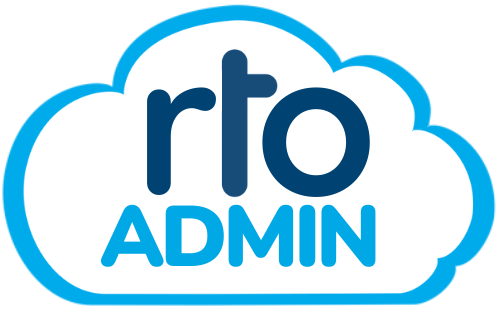Have you ever wondered how schools and educational institutions manage the complex web of administrative tasks that ensure smooth operation? The answer lies within the robust functionalities of a Student Management System (SMS). This powerful tool integrates various processes such as compliance, assessment, courses, enrolment, calendars, scheduling, finance, and automation to simplify operations, allowing institutions to focus on their core mission: student growth and development.
Introduction to Student Management System
A Student Management System (SMS) is a comprehensive software solution designed to streamline the myriad of administrative tasks within an educational institution. From managing compliance requirements to scheduling and financial management, an SMS acts as a centralized hub that greatly reduces the complexity of daily operations.
Benefits of Using an SMS
- Efficiency: By consolidating numerous functions into a single platform, an SMS eliminates redundancy and increases operational efficiency.
- Compliance: Ensures that institutions adhere to local and international regulations by keeping comprehensive records and generating reports.
- Growth: Frees up valuable time and resources that can be redirected towards improving educational programs and student experience.
Essentials for an Effective SMS
An effective SMS must possess several key features to deliver on its promises. These features ensure that all critical aspects of educational administration are adequately covered, enabling seamless operations.
Contact Data and CRM Capabilities
To foster strong relationships with students and parents, an SMS needs to have advanced Customer Relationship Management (CRM) capabilities. This includes rich contact data, which helps in personalizing communication and providing customized support.
Comprehensive Coverage
An effective SMS must cater to a broad spectrum of administrative needs, such as:
- Compliance: Adhering to regulatory requirements and managing trainer competencies.
- Courses: Creating, managing, and tracking the progress of educational courses.
- Assessment: Facilitating both online and offline assessments.
- Enrolment: Streamlining the enrolment process with customizable forms and payment options.
- Finance: Managing financial transactions, generating invoices, and tracking payments.
- Scheduling: Organizing calendars, managing appointments, and resolving scheduling conflicts.
- Automation: Reducing manual effort by automating repetitive tasks.
- Trainer Competency: Tracking and managing trainer qualifications and certifications.
- Resource Library: Storing and managing educational resources in a centralized, cloud-based repository.
- Work-Based Learning: Supporting students with mobile access to course details and capturing hands-on learning experiences.
Core Features in Detail
To fully understand the contributions of an SMS, it’s essential to examine its core features in greater detail.
Compliance
Compliance is non-negotiable for educational institutions, as it ensures that they operate within legal and ethical boundaries. An SMS helps institutions manage compliance by:
- Reporting: Generating detailed reports on AVETMISS, USI, and other regulatory data.
- Trainer Competencies: Keeping track of trainer certifications and ensuring that they meet regulatory standards.
- Document Management: Capturing and storing student documents in a secure and organized manner.
Courses
Managing courses is a fundamental element of educational administration. An SMS simplifies this process by:
- Course Setup: Enabling institutions to easily set up and manage courses.
- Progress Tracking: Monitoring learner progress and ensuring that educational milestones are achieved.
- Certificates: Creating and awarding certificates upon course completion.
Assessment
Assessment is crucial for evaluating student learning and development. An SMS streamlines this process through:
- Online Assessments: Offering online assessments with instant results.
- Custom Plans: Allowing the creation of custom assessment plans to meet specific educational needs.
Online Enrolment
An SMS enhances the enrolment process by making it more efficient and user-friendly. Features include:
- Custom Forms: Creating customizable enrolment forms tailored to institutional requirements.
- Payment Processing: Handling all aspects of payment processing during enrolment.
Finance
Financial management is an integral part of any educational institution. An SMS supports financial processes by:
- Invoicing: Generating accurate invoices for tuition and other fees.
- Payment Tracking: Keeping a record of payments and outstanding balances.
- Payment Plans: Offering flexible payment plans for students.
- Data Export: Exporting financial data to accounting software for easier financial management.
Scheduling
Effective scheduling ensures that educational activities run smoothly. An SMS aids in:
- Calendar Management: Organizing calendar appointments efficiently.
- Conflict Resolution: Highlighting and resolving scheduling conflicts.
- Notifications: Notifying attendees of any changes in schedules.
Automation
Automation is a powerful tool that significantly reduces manual effort. An SMS can automate tasks such as:
- Course Information: Automatically sending course information to students.
- Attendance Warnings: Issuing attendance warnings based on preset criteria.
- Quality Surveys: Distributing quality surveys to gather feedback and improve services.
Trainer Competency
An SMS assists in managing and tracking the competencies of trainers, ensuring they are qualified and up-to-date with their certifications.
- Competency Management: Tracking trainer qualifications and competencies.
- Expiration Reminders: Sending reminders for certification expiration to ensure trainers remain compliant.
Resource Library
A well-organized resource library is essential for providing quality education. An SMS offers:
- Cloud-Based Storage: Storing educational documents and resources in a centralized, cloud-based repository.
- Version Control: Ensuring that the most current version of a document is always available.
- Categorization: Organizing resources into categories for easier access and retrieval.
Work-Based Learning
Work-based learning integrates academic learning with practical experience. An SMS supports this through:
- Mobile Access: Providing students with mobile access to course details.
- Evidence Capture: Capturing evidence of work-based learning experiences.
Additional Resources and Support
To maximize the benefits of an SMS, institutions can leverage additional resources and support options.
Blog and Support
For Australia & New Zealand, as well as the rest of the world, blogs and support services provide valuable insights into:
- RTO Marketing: Strategies to effectively market registered training organizations.
- Compliance: Ensuring adherence to local and international standards.
- Training: Tips and best practices for delivering high-quality training and education.
Sales Contact and Product Demos
For institutions considering implementing an SMS, sales contacts and product demos are available to:
- Understand Features: Provide a comprehensive overview of the SMS features and functionalities.
- Customized Solutions: Offer customized solutions tailored to specific institutional needs.
Client Stories
Real-world client stories showcase how various institutions have successfully adopted an SMS, highlighting:
- Success Stories: The transformations experienced by institutions after implementing an SMS.
- Best Practices: Insights into best practices and strategies for maximizing the effectiveness of an SMS.
About the Company
The company behind the SMS offers comprehensive training management solutions. Its primary focus is on simplifying complex administrative processes to enable educational institutions to achieve better outcomes.
Training Management Solutions
Their solutions encompass a wide range of functions, including:
- Compliance Management: Ensuring institutions adhere to regulatory requirements.
- Course Management: Simplifying the setup and management of courses.
- Financial Management: Streamlining invoicing and payment tracking.
- Resource Management: Providing a centralized repository for all educational resources.
Focused on Outcomes
By automating and simplifying processes, the company helps institutions:
- Improve Efficiency: Reduce the time and resources spent on administrative tasks.
- Enhance Growth: Allocate more energy towards improving educational programs and student experiences.
- Ensure Compliance: Stay up-to-date with regulatory standards and reporting requirements.
In conclusion, a Student Management System is an indispensable tool for modern educational institutions. It brings together all essential administrative functions into a single platform, simplifying complex processes and enhancing operational efficiency. By investing in an effective SMS, institutions can ensure compliance, streamline operations, and focus on what truly matters: the growth and development of their students.



